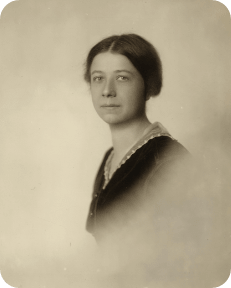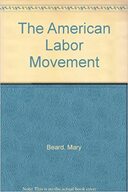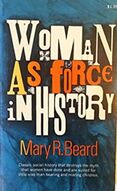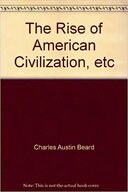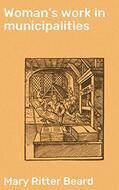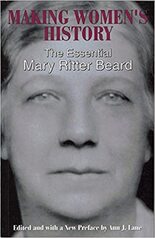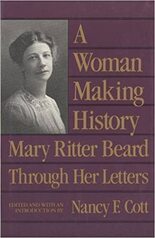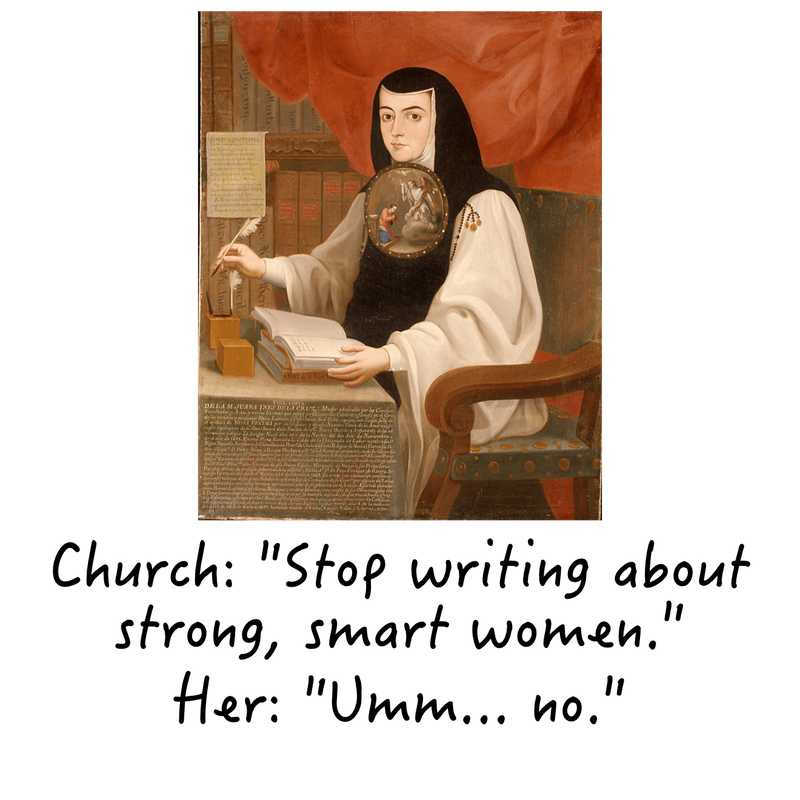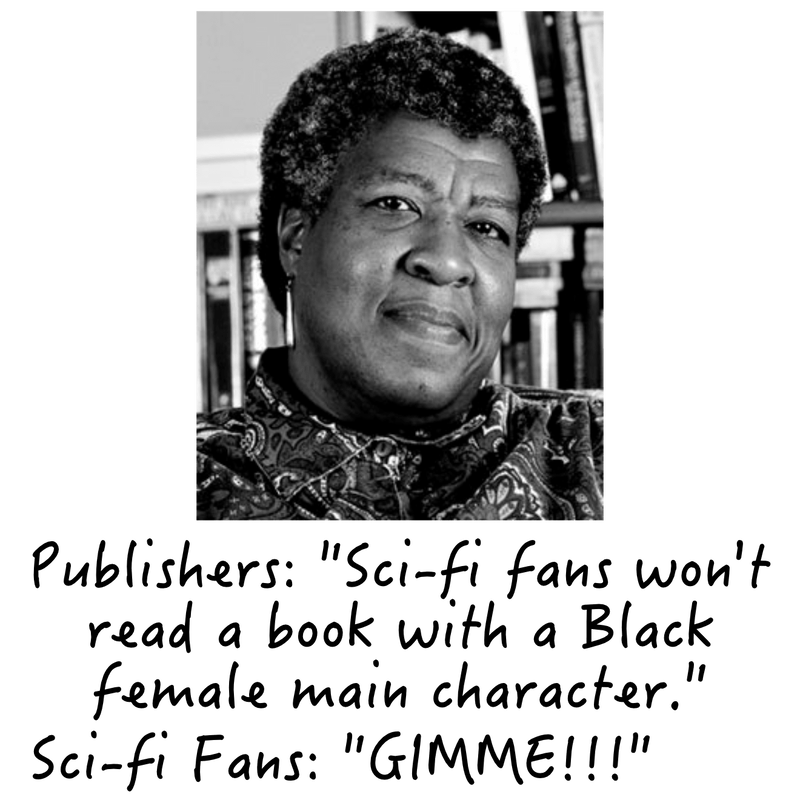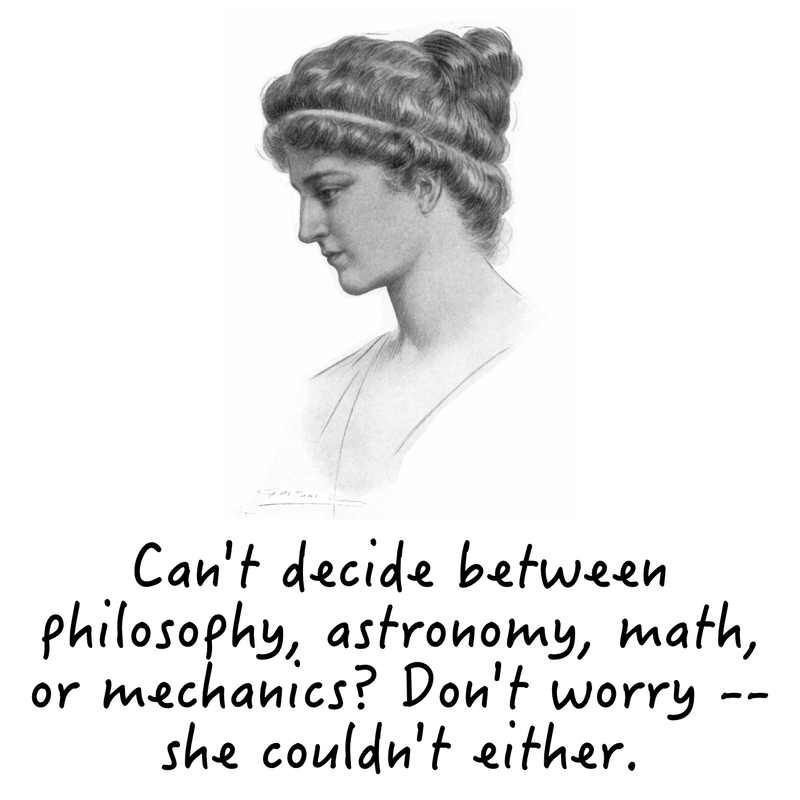"Reverencing our pioneers is important. But work in our own time for our own time is equally vital, is it not?"
|
Not So Awesome
~ On the plus side, Beard differentiated herself from many of her fellow white suffragists by seeking out ways to include women of color. When many leaders of the 1913 women’s march desired a segregated procession, she fought for integration, and when she started organizing her World Center for Women's Archives (WCWA), she actively sought out contributions from women of all classes and races, particularly soliciting participation from leaders in the Black community, such as Mary McLeod Bethune and former presidents of the National Association of Colored Women. However, when some white members of the WCWA refused to allow the Black women to join, Beard did not fight for their inclusion, choosing instead to avoid the issue altogether by having them work directly with her rather than the organization itself. This loophole was challenged by many of the white members, some arguing that the Black women had every right to become members, and others rejecting their participation altogether. This infighting over race was part of the reason the project failed.
~ While her work provided invaluable evidence of women's capabilities and achievements, Beard had little patience for women who claimed their lack of achievement was due to a system that oppressed them. Instead of recognizing the very real legal and social limitations placed on women, she drew on her own experiences as a middle-class white woman with a supportive husband to accuse those women of indolence and frailty.
~ While her work provided invaluable evidence of women's capabilities and achievements, Beard had little patience for women who claimed their lack of achievement was due to a system that oppressed them. Instead of recognizing the very real legal and social limitations placed on women, she drew on her own experiences as a middle-class white woman with a supportive husband to accuse those women of indolence and frailty.
Bibliography: Cott, Nancy F. "Beard, Mary Ritter." The Oxford Encyclopedia of Women in World History, Vol. 1, Oxford University Press, 2008, p. 206-207.
Norton, Mary Beth. “Teaching Women About Themselves.” New York Times. 1991, March 24.
Trigg, Mary. ”To Work Together for Ends Larger than Self": The Feminist Struggles of Mary Beard and Doris Stevens in the 1930s. Journal of Women's History, Volume 7, Number 2, Johns Hopkins University Press, Summer 1995, pp. 52-85.
Norton, Mary Beth. “Teaching Women About Themselves.” New York Times. 1991, March 24.
Trigg, Mary. ”To Work Together for Ends Larger than Self": The Feminist Struggles of Mary Beard and Doris Stevens in the 1930s. Journal of Women's History, Volume 7, Number 2, Johns Hopkins University Press, Summer 1995, pp. 52-85.
Please note that while Awesome Women Library tries to include links only to media from reputable sources, we cannot attest to the quality or content of any media listed on this website. Our mission is to introduce you to these Awesome Women and give you a wide array of resources for learning more. We haven't read everything listed and are not a recommendation site, nor is this meant to be an exhaustive catalog of every book related to this woman -- there's just too much out there! Happy reading!!

